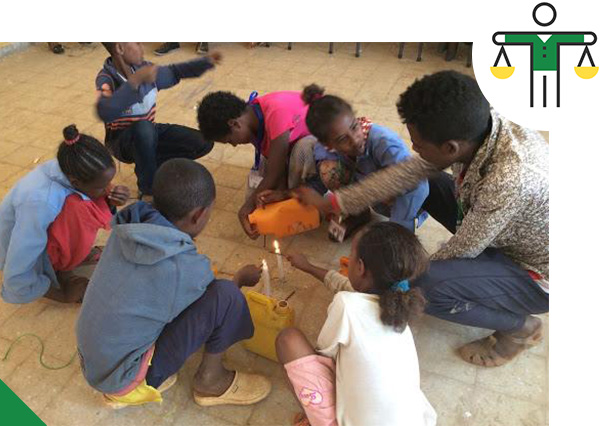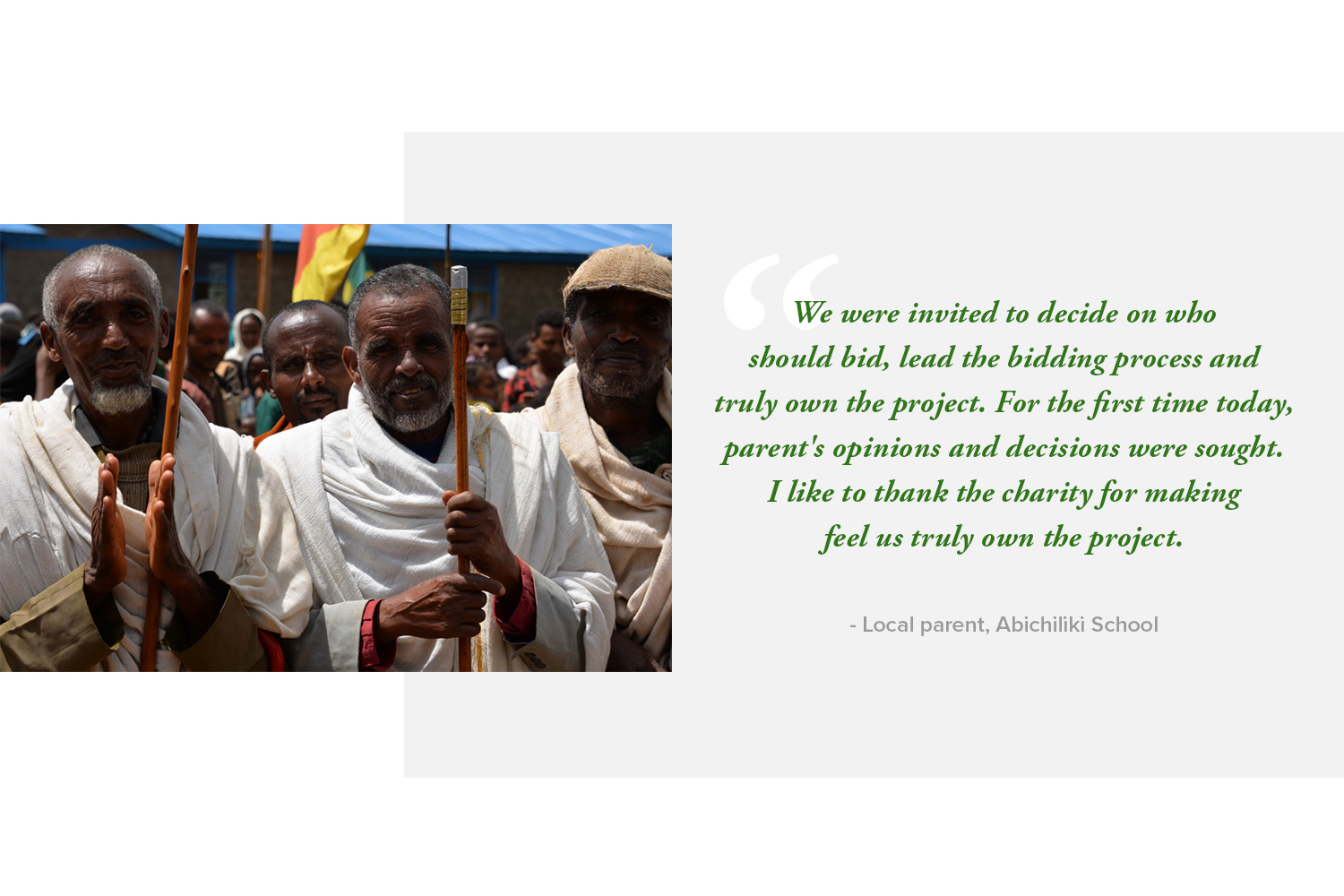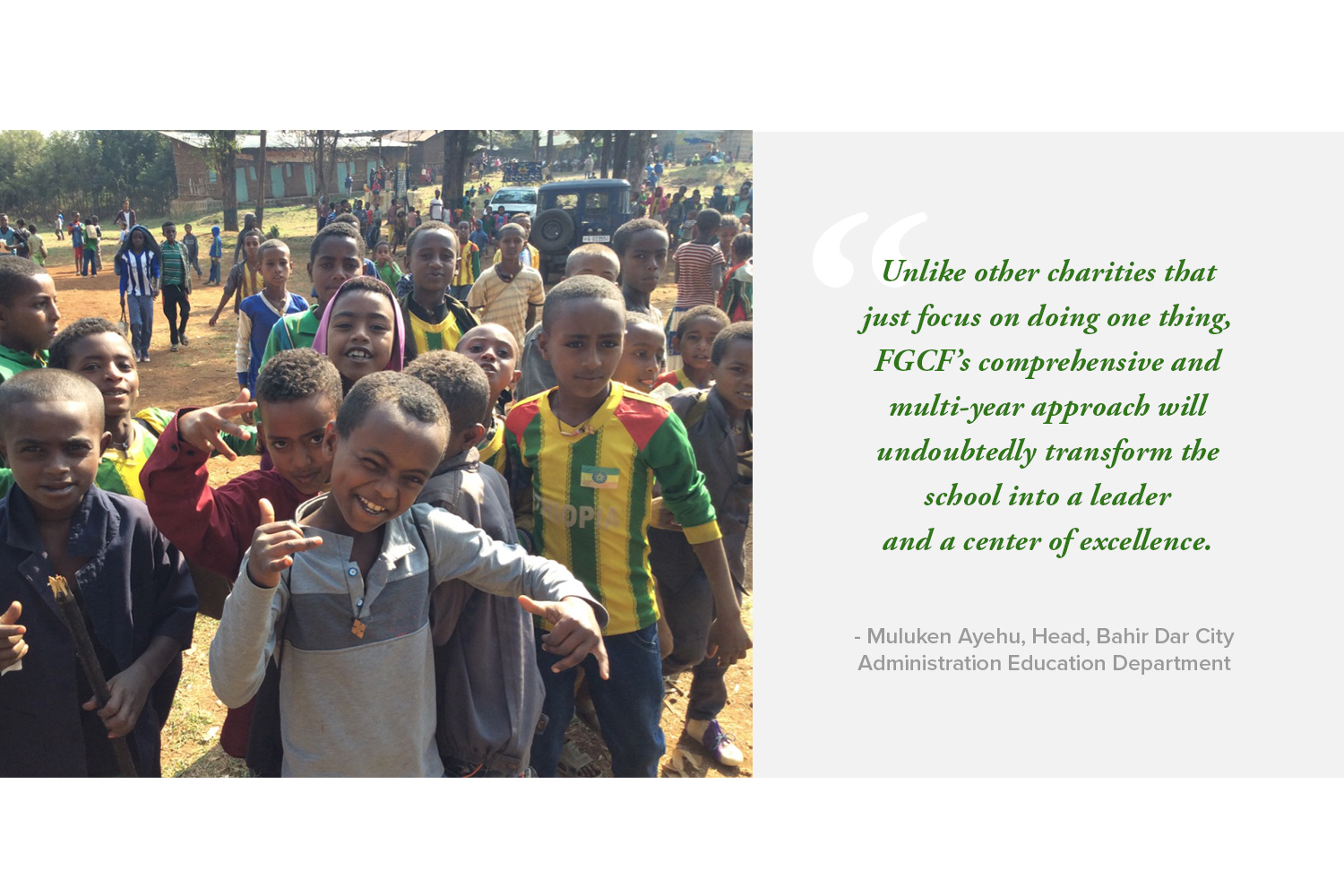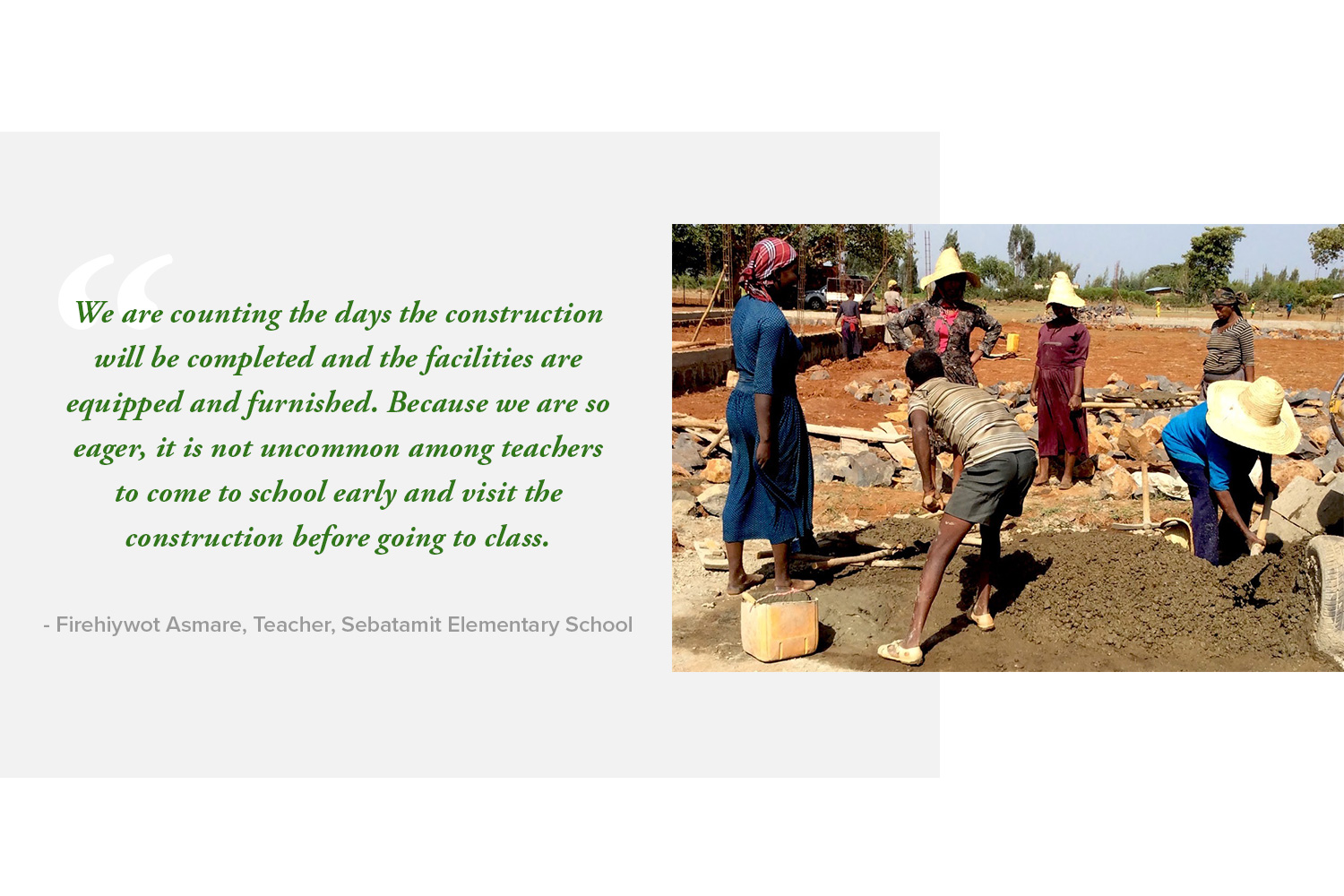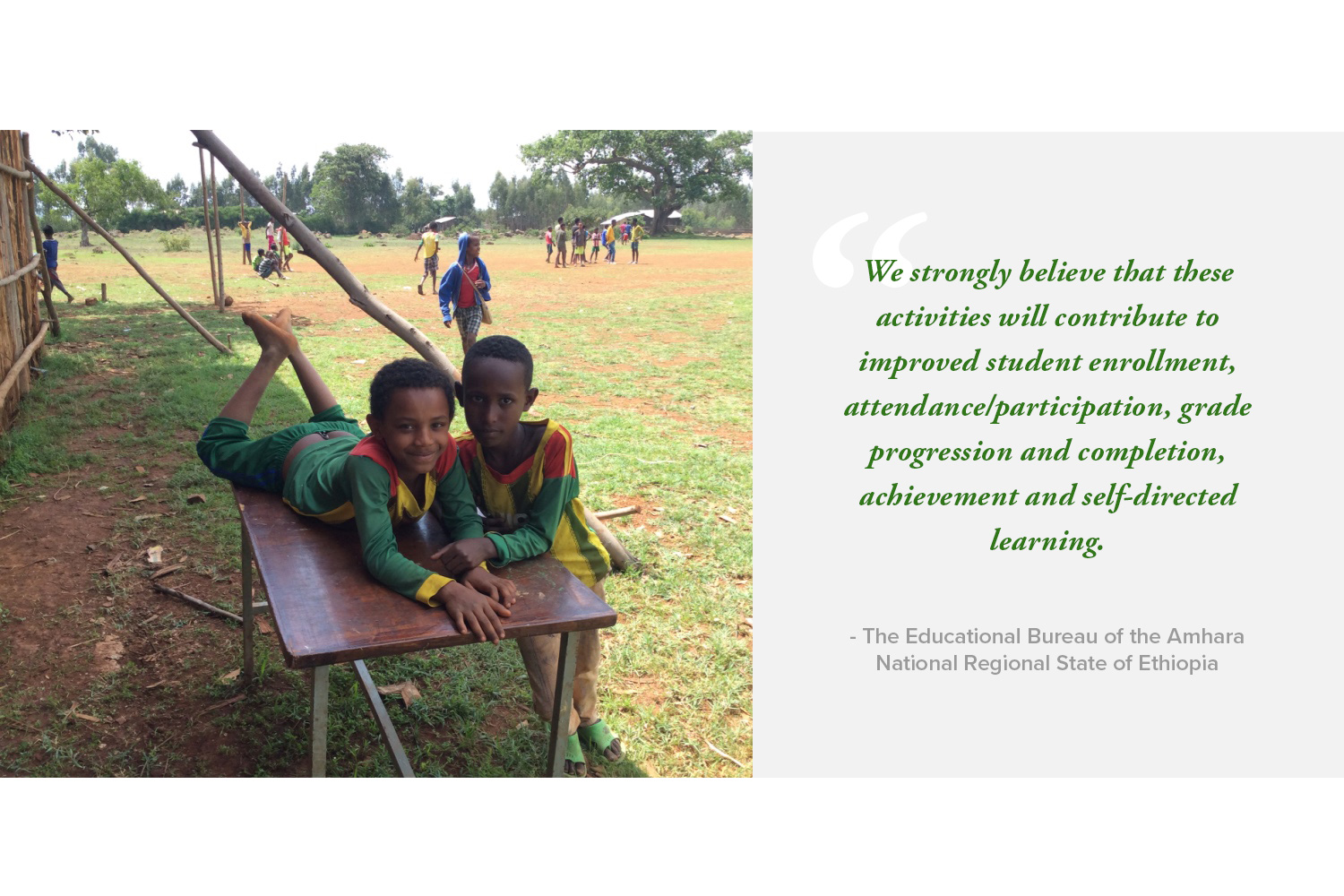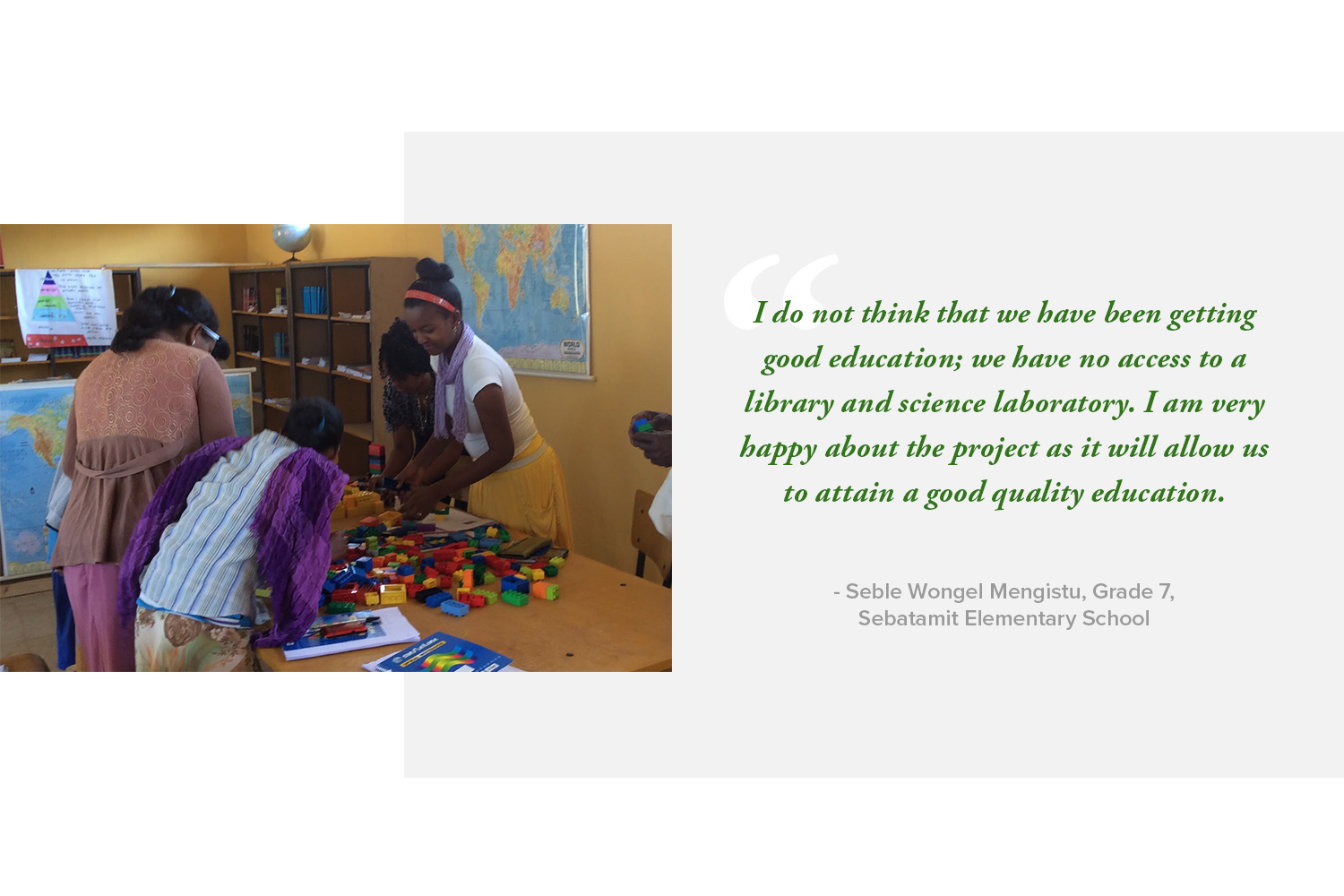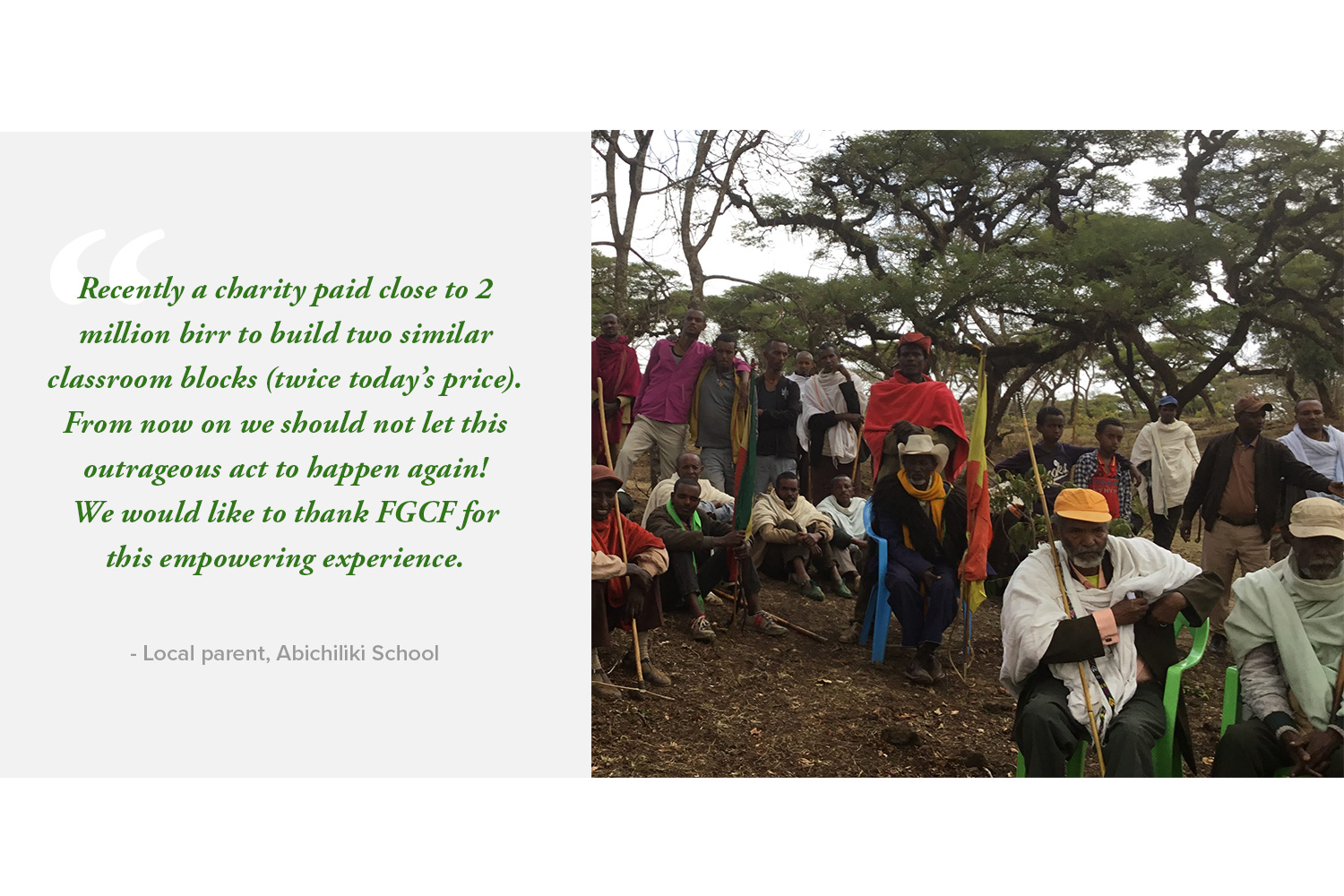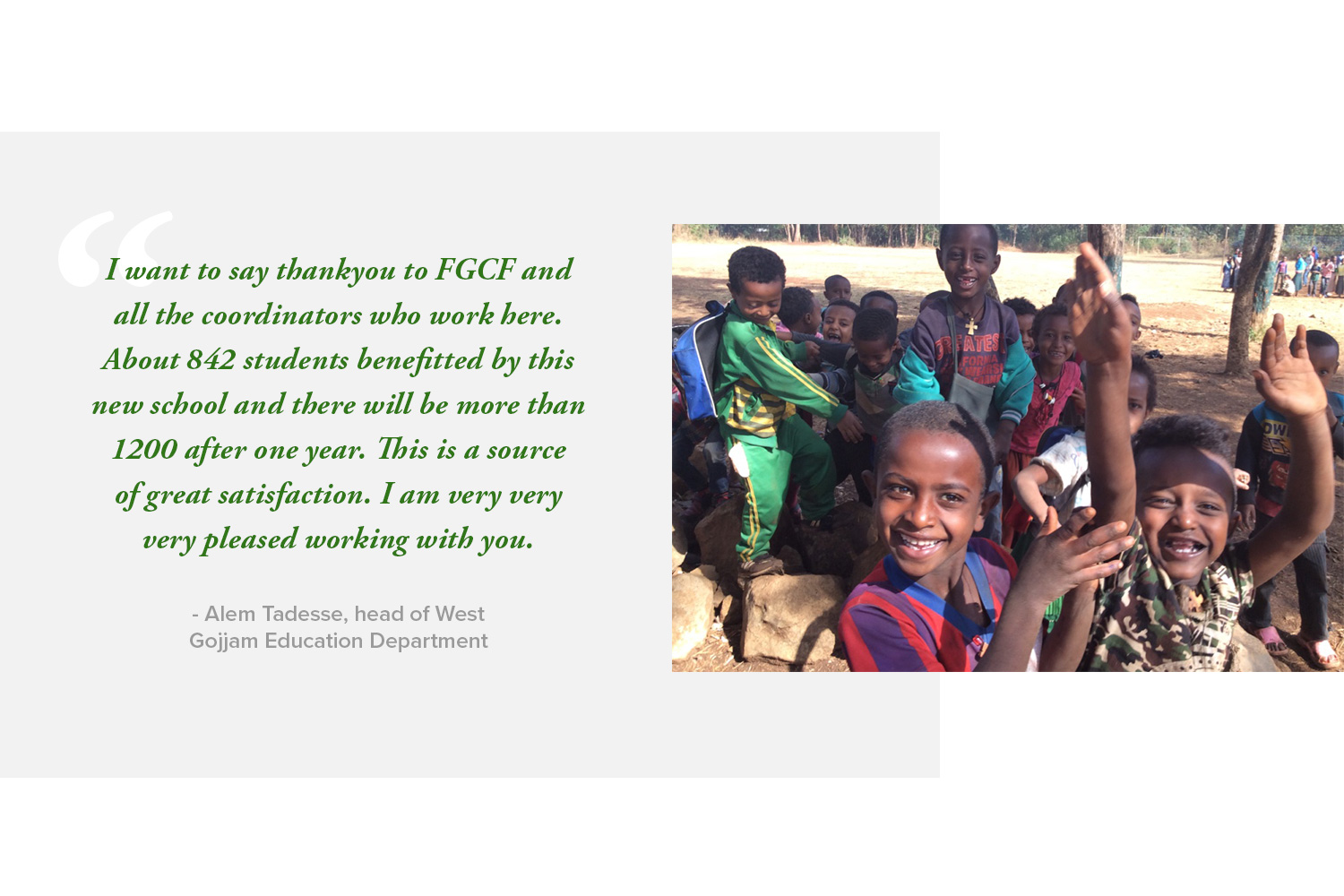Focus Areas
Poor achievement in rural schools is mainly a result of very poor learning environments and very poor quality of teaching. Substandard physical infrastructure, inadequate learning materials, and health risks from lack of latrines and clean water exemplify existing school conditions. Teaching methods are typically based on a “chalk and talk” teacher-centred lecture approach, even at elementary grade levels. Studies indicate that the current focus needs to shift from number of years of school attendance to improving quality of learning: quality of education is what matters to economic development. Consequently, we have adopted a holistic approach, which addresses all of the factors that contribute to lack of access to, and lack of quality of, education in the region. Our model consists of the following initiatives, included as part of each project:
Facilities development
We upgrade physical facilities, replacing dark, broken down mud classrooms with new cement block structures with tile floors. No longer do schools have to take Friday afternoons off in order for students to spread dung on classroom floors to keep the dust down. At each school, we also build a library, administration block, science laboratories and latrines. We furnish all buildings with locally made desks and chairs, and we provide sports equipment and library books.
teacher training
Our Education experts hold regular teacher training workshops at all schools, in collaboration with the International Community School (ICS) and the Regional Education Department. These are based on a student-centred, experiential approach to learning, and introduce novel instructional resources, as well as holistic methods of evaluation, to all teachers, principals, and supervisors. Our experts continue weekly follow up, and mentor each teacher for three years. Selected teachers from each school also travel periodically to Addis Ababa to shadow classes of ICS teachers, learning new approaches, student engagement and assessment strategies. After these visits, they in turn mentor their fellow teachers. Special Needs teachers receive specific training from Special Needs teachers at ICS.
school greening and educational gardening
Our greening and educational gardening program consists of planting trees that will serve as live fences and canopies that provide shade for both indoor and outdoor classrooms. It also includes planting and maintaining organic vegetable gardens and fruit orchards at each school. Not only are students learning hands-on agricultural practices and gaining nutritional knowledge, but also, experiential learning approaches are being designed to integrate various aspects related to the gardens into a wide range of course curricula. The programs provide work for students and the resulting produce provides income for the school and local families. Support by way of providing seeds, seedlings, expertise, water tanks, irrigation equipment, farm implements and gardeners have been provided by Bahir Dar University, ISEE-urk, a Dutch NGO, and Compassionate Eye Foundation.
Water, sanitation and hygiene
We facilitate bringing water to each school via redirection of nearby water sources and construction of reservoirs and distribution points. In communities where there are no such nearby water sources, boreholes are being dug. Wash basins are set up by latrines. In collaboration with the local Health Department, and the Calgary-based NGO, “CAWST” sanitation and hygiene workshops are provided to students and teachers. WaSH clubs are strengthened at schools after the workshops, and trained students teach others and lead the school community in keeping the schoolyard, classrooms and latrines clean and safe. Our Education experts follow up implementation of the workshop lessons at each school on a regular basis. Anecdotal evidence indicates that students have been taking lessons learned home to their own families: “agents of change”.
eye health
Partners has established a partnership between Operation Eyesight Canada Inc (OES) and the College of Medicine and Health Sciences Bahir Dar University (BDU) to promote eye health amongst our students and their families. Partners’ staff work with health care workers, ophthalmologists, optometrists, educators in conjunction with medical students from several universities in training staff, conducting eye assessments and facilitating treatment of eye health issues. Glasses have been so far been distributed to over 5,000 individuals. Vision Centres have been established in three regional hospitals, where treatment of eye diseases takes place.
Outcome measurement
Annual standard Early Grade Reading Assessments and Early Grade Mathematics Assessments created by USAID are administered at our schools as well as at control schools in the same region. Students from the Education Department at the Bahir Dar University administer the assessments, and analysis is done by our research expert and staff. Surveys of drop out and completion rates, particularly of girls. These are used to identify areas where improvement may be made, and to form a baseline for target outcomes for the next year.
interconnectivity
The COVID experience, with schools being shut down, highlighted the disparity in access to education across demographic groups. With no power, let alone internet access, those in poorer, rural areas where we operate had no opportunity to receive any education. As a result, we have initiated programs in collaboration with the Basic Internet Society and the Compassionate Eye Foundation to bring solar power, internet access, computer resources, and information technology training to our high schools.
research projects
Partners has begun to engage in research projects in conjunction with various universities, that will potentially improve educational pedagogies as well as access to learning. Projects aim to determine and assess challenges and barriers to learning, as well as conduct pilot projects of different tools for learning.
Temari
The Temari project, conducted in partnership with Professor Karen Wells of the University of London (Birkbeck) and Professor Getnet Tadele of University of Addis Ababa, entailed a two-year ethnographic study designing new pedagogical tools based on translanguaging principles, and using them in some of Partners’ grade 7 classrooms.
The outcome of the project indicated that students enrolled in the program had a 5.1 times greater chance of achieving a passing grade than those not in it. It is hoped that this result will ultimately impact educational policy and practice in the region .
Community Collaboration
All of Partners in Education’s projects are initiated by communities. Community committees are signatories to construction contracts; they stay closely involved and are consulted throughout the duration of projects. At the selection stage, they negotiate a percentage share of the total project cost, depositing their contributions into our bank account prior to the beginning of construction. Community members collaborate with Partners in Education to select contractors for the project: each party invites contractors to submit sealed bids, and they are opened at a public meeting. Once the project is underway, community members, along with local government engineers and Partners in Education’s independent construction consultants, oversee physical construction and the greening program on an ongoing basis.
Government Collaboration
The Woreda/District Education Office is a signatory to the construction contracts for each project. This ensures that government standards are respected at every stage. The Office assigns and pays teachers and support staff, supplies science kits and textbooks, and helps facilitate and implement the professional development component of the projects. Representatives of the Office have also attended our workshops. The Regional Education Bureau has approved Partners in Education’s request to run each of its target schools by a steering committee composed of representatives of the district education offices, parents, students, and teachers, Partners in Education staff, principals, and supervisors. The Bureau has also provided Partners in Education with a furnished office free of rent.
Implementation Framework
Communities approach Partners in Education with proposed projects. We assess the need, the commitment of the community as well as the school principals, and the community’s ability to contribute to the cost. Community contributions are deposited into our bank account and then sealed contractor bids are tendered and opened in a public forum. Construction begins immediately thereafter, and normally new schools are opened at the start of term in September. Teacher training, sanitation & hygiene, and greening and gardening programs follow as soon as the school is built. Outcome measurement and research begins at the end of the first year.





